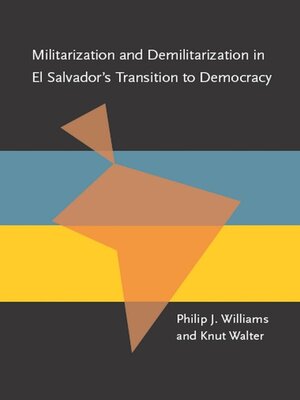Militarization and Demilitarization in El Salvador's Transition to Democracy
ebook ∣ Pitt Latin American
By Philip Williams

Sign up to save your library
With an OverDrive account, you can save your favorite libraries for at-a-glance information about availability. Find out more about OverDrive accounts.
Find this title in Libby, the library reading app by OverDrive.



Search for a digital library with this title
Title found at these libraries:
| Library Name | Distance |
|---|---|
| Loading... |
With the resignation of General Renee Emilio Ponce in March 1993, the Salvadorian army's sixty-year domination of El Salvador came to an end. The country's January 1992 peace accords stripped the military of the power it once enjoyed, placing many areas under civilian rule. Establishing civilian control during the transition to democracy was no easy task, especially for a country that had never experienced even a brief period of democracy in its history.In <i>Militarization and Demilitarization in El Salvador's Transition to Democracy</i>, Phillip J. Williams and Knut Walter argue that prolonged military rule produced powerful obstacles that limited the possibilities for demilitarization in the wake of the peace accords. The failure of the accords to address several key aspects of the military's political power had important implications for the democratic transition and for future civil-military relations.Drawing on an impressive array of primary source materials and interviews, this book will be valuable to students, scholars, and policy makers concerned with civil-military relations, democratic transitions, and the peace process in Central America.







